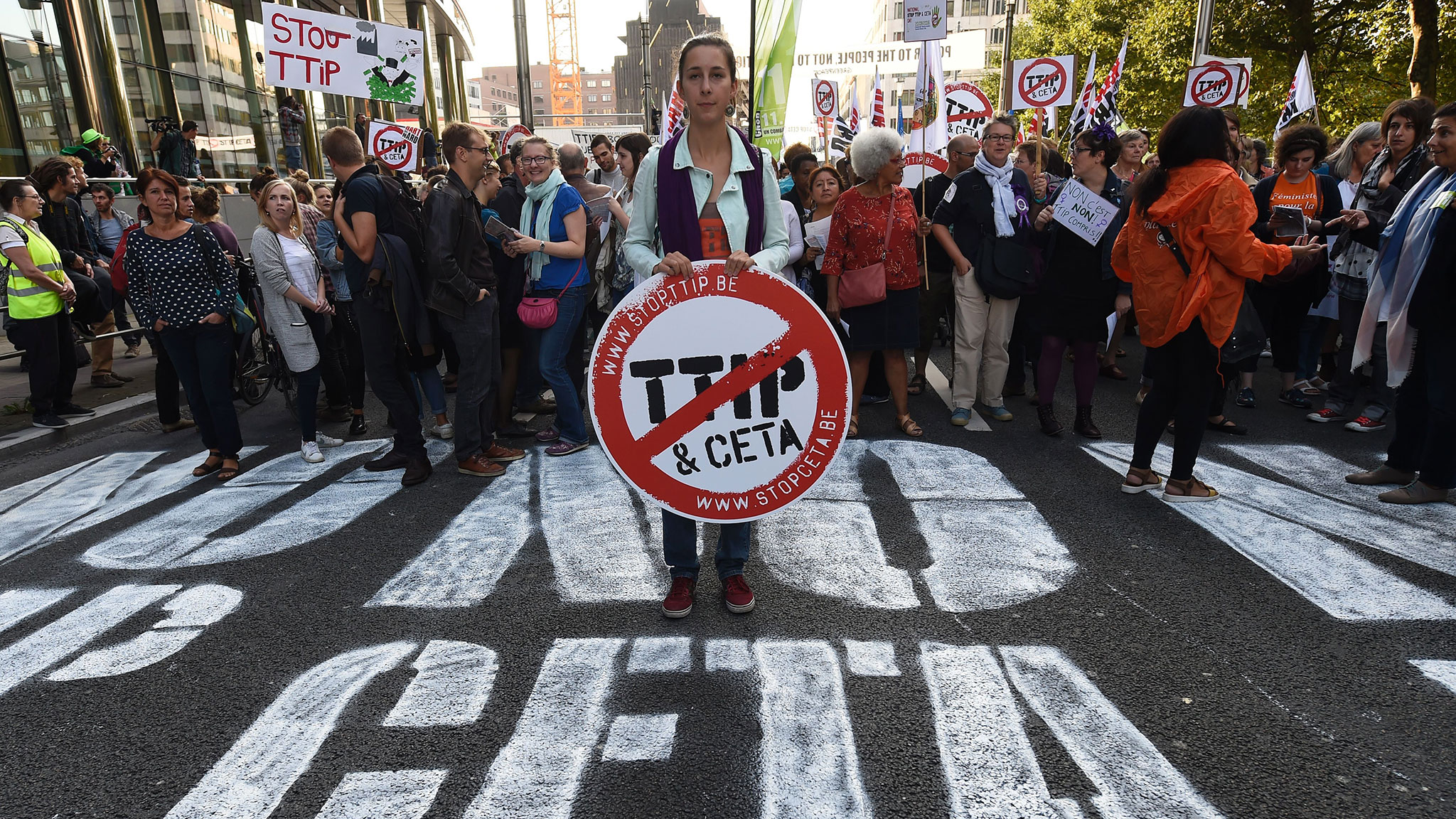Juncker proposes fast-tracking EU trade deals
Politico | 31 Aug 2017
Juncker proposes fast-tracking EU trade deals
Commission chief wants to avoid another Walloon crisis by cutting out national and regional parliaments.
By Hans von der Burchard
European Commission President Jean-Claude Juncker aims to solve one of the greatest weaknesses of EU trade policy by proposing fast-track ratification of trade deals that would eliminate the need for approval by some 40 parliaments across Europe.
Running the gauntlet of national and regional assemblies almost proved fatal to Brussels’ attempts to conclude a trade agreement with Canada last year, when the parliament of the French-speaking Belgian region of Wallonia came within a whisker of torpedoing the whole agreement.
Juncker wants to avoid a rerun of that fiasco.
Building on the momentum of a landmark deal with Japan in July, he wants brisk progress on deals with Australia and New Zealand. Diplomats say these two deals will be the first to use a new framework that would allow ratification without the danger of a veto from any of the sometimes rebellious national and regional parliaments.
Juncker is expected to use his State of the European Union speech September 13 to call for a quick start of talks with Canberra and Wellington. Negotiating proposals based on the new model will then follow within “days,” according to a trade diplomat and several lawmakers in the European Parliament familiar with the dossier. Member countries would have to approve Juncker’s proposals.
The new model involves splitting deals into two parts. The vast majority of chapters in trade accords fall under the exclusive competence of the EU, meaning those sections can be ratified by the European Parliament and EU governments as represented at the Council.
The only reason national parliaments become involved is that some sections of the agreements related to investment — most contentiously the rules for big investors suing governments — do require approval back in the member countries.
The Commission’s plan is to carve out the parts of the deals related to investment so that the lion’s share of the trade pacts can be approved in Brussels.
The cabinet of European Commissioner for Trade Cecilia Malmström tested the waters for this approach in July, when it shared a “proposed new architecture for splitting” trade deals among EU ambassadors. POLITICO obtained a copy of the proposal. Jean-Luc Demarty, head of the Commission’s trade department, told lawmakers in a closed-door meeting this week that Brussels wanted to split all future trade deals, according to people at the briefing.
Reducing the say of national parliaments is sensitive, however. Germany — the heartland of last year’s protests against new trade deals — asked the Commission not to push too far ahead with this tactic until the country’s federal elections on September 24, several trade diplomats in Brussels said.
A Commission official confirmed the plans to start talks with Australia and New Zealand under the fast-track approach but cautioned it was not yet certain whether the president would trumpet that plan in his State of the European Union. “Maybe Juncker will just allude to it,” he said. “But this is coming.”
The timing is critical because beyond Australasia, Brussels is looking to ramp up deals with Mexico and the South American Mercosur bloc.
The EU’s already concluded agreements with Singapore and Vietnam also stand in line for the split treatment.
The art of the split
The new approach follows a European Court of Justice ruling in May, which said that all parts of the EU’s trade deal with Singapore except non-direct foreign investment and investment dispute mechanisms fall under exclusive EU competence. The ruling is considered relevant to other EU trade deals because of their similarity to the Singapore agreement.
The Singapore ruling immediately led to calls for the separation of the few investment provisions from the rest of the trade deals.
“The Walloon drama has been a wake-up call,” said Daniel Caspary, trade spokesperson for the European People’s Party in the European Parliament. “People have been saying, ‘I want my national parliament to approve trade deals.’ But then they were quite shocked to see that another foreign parliament — even a regional one — can also block the deal. This has led to some realization that things have to change.”
The model could also prove crucial for a post-Brexit trade deal between the EU and U.K., which could be swiftly implemented without a national parliament holding it hostage for reasons unrelated to its content. Romania, for example, threatened last year to block the Canada agreement over visa reciprocity.
Senior representatives from the EU countries’ economic ministries will meet in Tallinn on September 21 and 22 to discuss the Commission proposal, and trade ministers will also debate it at their next meeting in Brussels on November 10, trade diplomats said.
Meanwhile, support for the Commission proposal is building. More than 60 academics signed the “Trading Together Declaration” earlier this year, which calls on splitting trade deals to distinguish between exclusive EU and national competences.
“Contrary to what some believe, this does not mean that national parliaments will lose their say,” said Marco Bronckers, professor for trade law at Leiden University and one of the authors of the declaration. He remarked that parliaments can still be asked to give their approval to trade deals before national governments approve them at the EU level — precisely what the German Bundestag did last year before Berlin gave its consent to the Canada agreement.
“There are many ways to better and earlier involve national parliaments,” he said.
Ryan Heath contributed reporting.






